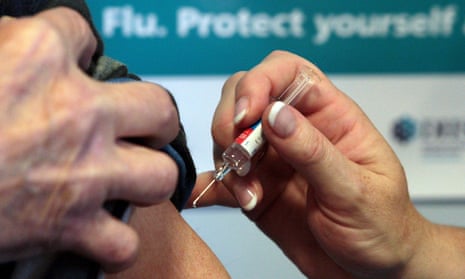Nearly a quarter of deaths in England and Wales in 2013 were potentially avoidable with good healthcare, improvements to lifestyles or vaccination, the Office for National Statistics has said.
In all, 114,740 (23%) of the 506,790 deaths recorded in the two countries were either amenable to treatment or could have been prevented through public health measures, or sometimes both, according to experimental statistics published on Wednesday.
They also show, though, that successes in reducing premature deaths since the millennium slowed dramatically two years ago.
Men’s deaths accounted for 28% of the avoidable deaths, women’s for 17%. Avoidable mortality had been falling significantly each year from 2001 to 2012, driven by improvements in treating or preventing diseases of the heart and blood vessels.
However, improvements in reducing avoidable early deaths did not continue in 2013. This is likely to provoke debate on whether advances in medical and surgical treatments, as well as continuing falls in numbers of people smoking, are being undermined by lifestyles, fuelling big increases in the number of overweight or obese people and those with type 2 diabetes.
The male avoidable death rate fell from 407.8 deaths per 100,000 in 2001 to 278.3 deaths in 2013. The female rate dropped more slowly from 234.9 to 168.8 per 100,000.
Deaths from causes amenable to treatment have been falling faster than those which might have been prevented by public health measures, including vaccination, since 2001.

Coronary heart disease is still overall the most common single cause of avoidable death, having fallen proportionately more for men than women. Avoidable lung cancer deaths have also dropped for men but risen for women: lung cancer is the biggest single avoidable killer for them.
Avoidable deaths in England fell from 26% of all deaths in 2001 to 22%. In Wales the comparative figures were 27% and 24%.
Ben Gummer, health minister in England, said: “It is encouraging to see the number of people dying from avoidable causes has fallen in the last 10 years. However, these figures make sobering reading and we know more needs to be done.
“We want everybody to have the same opportunity to lead a healthy life and aim to be the best in Europe at reducing premature mortality. Local authorities have been given a budget of £8.2bn over three years to help tackle the public health priorities in their communities.”
His boss, Jeremy Hunt, announced ambitions to reduce premature mortality from cancer, heart disease, stroke and respiratory and liver diseases in 2013. He hopes England can be among the best performers in Europe by 2020.

Comments (…)
Sign in or create your Guardian account to join the discussion